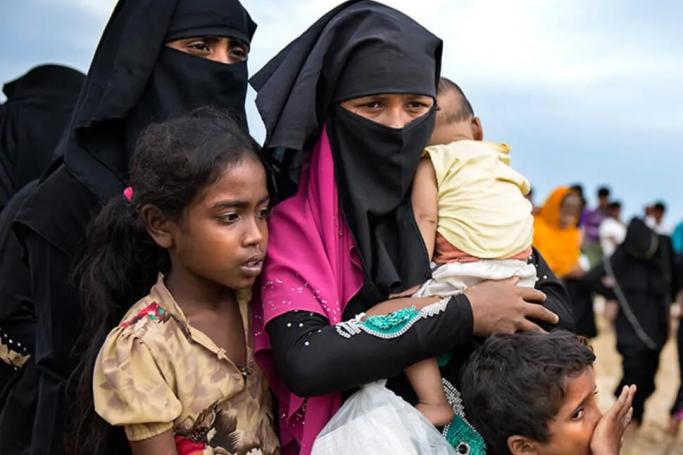Home is where the heart lies. As Myanmar edges towards three years of military rule, the crisis faced by people displaced from their homes by conflict is worsening with no solution in sight.
Last week, the UNHCR said the number of internally displaced people in Myanmar had edged up to about 2 million, many of them facing problems of shelter, food and medicine, with the cool season approaching. In addition, an estimated 70,000 refugees are reported to have fled the country since the coup, and over a million Rohingya remain in camps in Bangladesh having fled military attacks in 2017, some having escaped decades ago.
The displacement of people due to the Myanmar crisis matters and needs to be tackled but there are no easy answers at this stage.
Last week, the United Nations issued a report on conflicts including the situation in Myanmar that have led to a total of 114 million people being displaced around the world. This is contributing to tensions in a number of countries, with growing numbers of the general public raising their voices against the influx of illegal immigrants.
In Myanmar’s case, there is pressure to solve the Myanmar crisis and get rid of the military junta before any meaningful return of refugees is considered. For IDPs, there is the possibility of return on a local level, subject to the state of hostilities. But the situation remains volatile, given the ongoing clashes on a number of fronts around the country, the most recent being as a result of resistance operations against the junta in northern Shan State.
Seldom is the situation either black or white – or simple to solve. For example, it has been reported that some IDPs in Rakhine State actually prefer remaining in their camps because they are receiving some support and their villages have been totally destroyed. Clearly, a “return home” for IDPs here would have to involve humanitarian aid and support to rehabilitate and rebuild communities.
Ideally, when it comes to refugees or IDPs on a global level, the world community should focus on enabling a dignified return home and a rebuilding of communities, including helping countries develop and also improve their economies. There is a growing backlash against the “open-door” policies encouraged by a number of governments, as seen with Germany and the so-called “open border” in the USA, for example.
When it comes to Myanmar, the international community may find itself having to engage with both the Myanmar resistance – including the National Unity Government – and having to deal with the junta, which has been using humanitarian aid as a weapon. Nobody would argue this is easy.
But despite the worsening crisis in Myanmar, the international community needs to begin putting the building blocks in place to enable the dignified and voluntary return of IDPs and refugees when the time is right and the circumstances are right.












